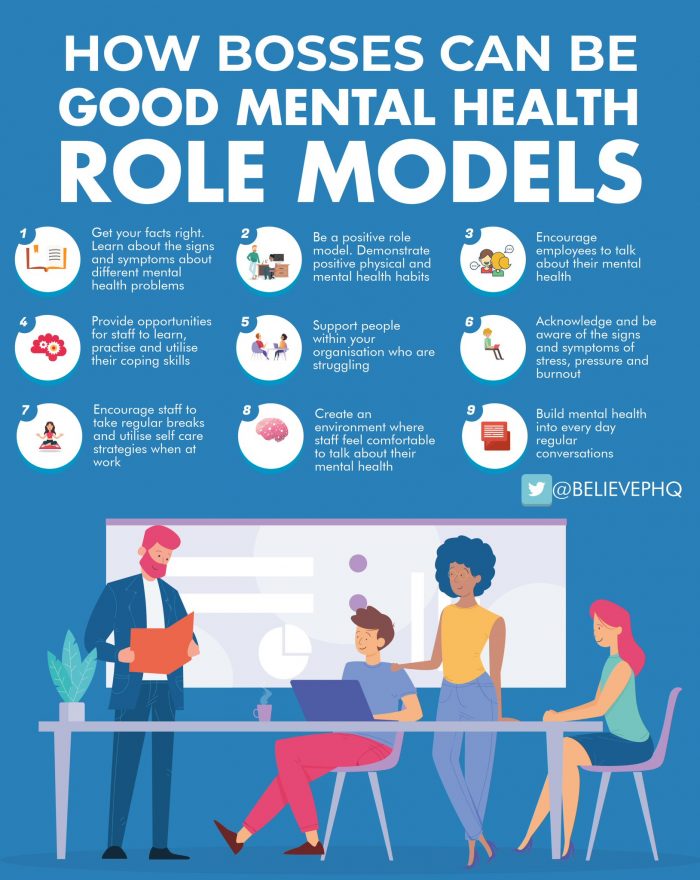
If you’re a manager, it’s likely that the people who work for you count on you for support and guidance. That’s why it’s so important to do what you can to help them achieve their professional and personal goals — especially when it comes to their mental health. By taking time to understand your employees’ needs, offering encouragement, and making sure they have access to resources that will help them through difficult times, managers can create an environment where everyone can thrive both professionally and personally.
Have a basic understanding of mental health. You can’t be a good mental health role model if you don’t know what mental health is. Mental health is not the same as physical health, but it’s just as important for everyone to have. Mental illness affects about 1 in 5 people in their lifetime and can affect anyone regardless of age or gender – even those who think they’re “too young” or “too old” to experience it. Mental health includes our emotional wellbeing (the way we feel), our psychological wellbeing (the thoughts that run through our heads) and our social relationships with others around us. It’s important because it affects how we think, feel and behave – which means that if someone has poor mental health then they may struggle with day-to-day life tasks such as getting up on time every morning or completing work tasks without getting distracted by something else first off!
Listening is key. Don’t just talk at your employees when they open up about their mental health and wellbeing; listen to them instead. Start by asking open questions like “How are you?” or “How was your weekend?” You should also ask questions that will help you understand what’s causing them stress or anxiety, so that you can address it appropriately. If an employee feels like they need more support from the company, find out what kind of resources would be helpful for them (like counseling services). If the situation is serious enough for intervention and treatment outside of work hours, make sure that these arrangements are made as seamlessly as possible for both parties involved — whether through paid time off or flexible scheduling options — so that there’s no disruption in productivity during business hours!
Let employees know that they can take time off when they need it, without fearing negative consequences. Employees should know that they can take time off when they need it, without fearing negative consequences. This can be difficult for some managers and employers to accept, but it’s important for your employees’ well-being. It’s important to let your staff know that their job is secure and valued by the company–even if an employee is missing from work temporarily due to mental health issues or other personal reasons. You should also make clear that there will not be any repercussions for taking time off; this includes being penalized in pay or position within the company as a result of having taken days off for mental health reasons (i.e., “I’m sorry but I won’t be able to come into work today because I’m feeling depressed”).
Managers who take the time to understand their teams’ needs will be more likely to create an environment where everyone can thrive both professionally and personally. As a manager, you may have a lot on your plate. But it’s important to remember that as a role model for your employees, you play an important part in helping them understand their mental health needs. Managers can help create positive environments where everyone feels comfortable talking about their mental health and stress levels. This will make it easier for employees to seek out the support they need when things get tough. As a manager, it’s important to remember that your employees are not just workers, but people. They have lives outside of work and they need to be able to do their jobs in a healthy environment. You can help create that environment by showing them that you care about them as human beings first–not just employees who need to be managed efficiently.
